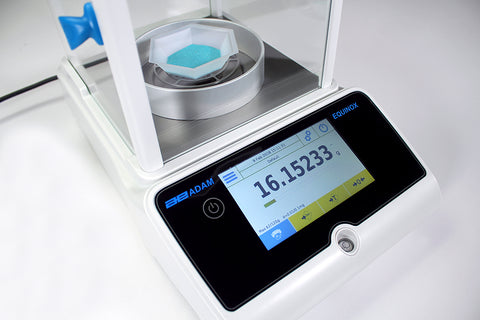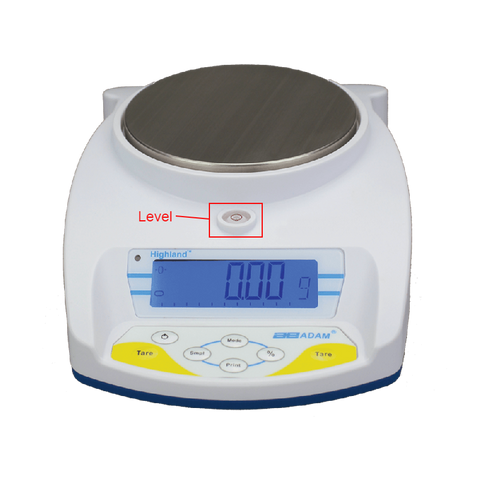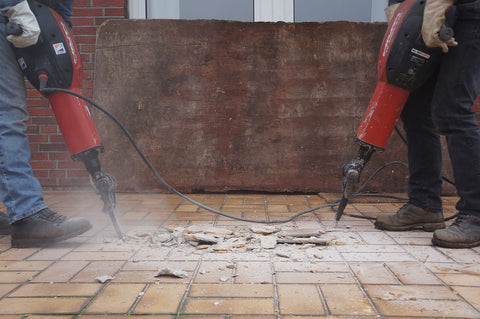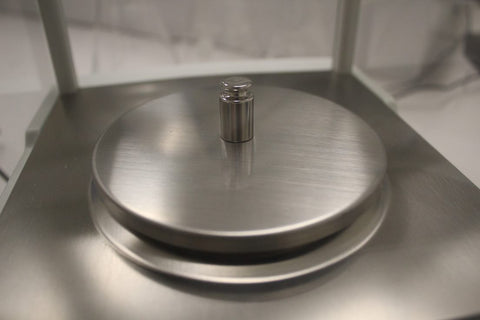
Do You Have Accurate Scales? 6 Tips for Getting a Reliable Weight
What’s the purpose of purchasing a scale if not to get an accurate and reliable weight measurement? That’s always the goal – but is your scale suitable for the task, and is it being used correctly in order to provide an accurate weight? One way to make sure is by consistently following these six tips.
Tip #1: Use the Right Type of Scale for You
Let’s start with a question. What’s your definition of “accurate?” Let’s be more specific. If you’re weighing parcels at a shipping facility, do you need sub-milligram weighing results? Probably not. You’ll likely be satisfied with a number rounded to the nearest gram. Therefore, your definition of accuracy is different from someone like a laboratory scientist.
Because there are so many types of scales, when considering accuracy, it’s important to match the capacity and readability of your scale to the type of items that you’re weighing. The lower the capacity on a scale, the finer the readability. The opposite is also true; the higher the capacity, the less fine the readability.
If you typically weigh very tiny objects, such as jewels or chemical powders, you’ll be unable to get the highly exact, sub-milligram results you require with the high-capacity bench scale that a postal worker may use. Instead, these applications require a highly precise scale like an analytical balance.
Essentially, you can only have any hope to have an accurate scale and gain accurate and reliable weighing results if you have the right equipment for your needs. Make sure you do research on the capacity and readability you require before purchasing.

Tip #2: Use a High-Quality Scale
Quality is the next consideration. Like all other products, you get what you pay for when it comes to weighing scales and balances. It’s tempting to buy a cheap scale, but the money you save initially is spent later down the line on repairs or even a replacement as the scale earns wear and tear. Not to mention more serious consequences that may occur if this low-quality scale regularly produces inaccurate results, ranging from inconsistent product quality to overloaded lorries or under-charged customers.
It's a better choice to invest in a high-quality scale from the get-go. They’re more durable, which means they need fewer repairs over time. They can usually be used for multiple applications, such as parts counting, percentage weighing and/or checkweighing, depending on the type of scale. In addition, they’re often more user-friendly, offering an intuitive operating experience. Most importantly, however, they’ll be more accurate than a low-quality scale for a longer period.
If you’ve invested in a high-quality scale, you can feel confident knowing that your results are accurate… as long as you follow the rest of these tips.
Tip #3: Use the Scale on a Hard, Flat Surface
Most high-quality scales come with a built-in level indicator, and this is for an important reason. Just like how your weight is distributed differently when you’re balancing on one foot versus being firmly planted on two feet, any objects you place on an unlevelled balance will have their weight distributed differently, and thus be inaccurate.
Luckily, this is an easy fix. Simply place your scale on a hard, flat surface, such as a benchtop or even the floor. If your balance is level, the bubble in the leveling indicator will be in the middle. If your scale is on a hard, flat surface but the bubble is off to the side, you may need to adjust the scale’s feet, by rotating them up or down as needed. This is also the solution for when you simply don’t have a hard or flat surface available, such as if you’re performing fieldwork.

Tip #4: Reduce Outside Disturbances
Highly precise scales such as analytical balances are more susceptible to inaccuracies caused by outside disturbances. This includes vibrations, air droughts and static electricity. That’s not to say that less sensitive scales, like platform scales, can’t be affected by outside disturbances, such as drilling or digging when utilised in a construction zone, just that simply walking by won’t cause issues like it might with an analytical balance.
There are multiple accessories that can combat these disturbances. For example, all analytical balances come equipped with drought shields, which allow you to walk by, wave your hands and heave a big sigh near the balance without your results being affected. Anti-vibration tables come in handy to prevent issues caused by that pesky construction down the street or your coworkers stomping around upstairs. Finally, ionisers are useful for protecting against static electricity that can be caused by cleaning cloths, gloves or even just items being dragged across the weighing pan.
With these accommodations, you may have confidence that you have an accurate scale, and your results are reliable and trustworthy.

Tip #5: Calibrate Your Scale Regularly
Even if your scale is the proper type for the job, high quality, on a hard, flat surface and protected from outside disturbances, it still needs to be calibrated regularly. Calibration should be scheduled every few months for sensitive balances and up to once or twice a year for less sensitive balances.
There are two main types of calibration: internal and external. Internal calibration allows the scale to calibrate by itself, which is generally easier. For example, Adam Equipment’s Luna Analytical Balance offers four models with internal calibration, while the other four must be externally calibrated. External calibration requires a calibration kit, complete with calibration weights. For more information about why calibration is so important, check out our previous blog, Calibration Services: Why Your Scales Should Be Checked Every Year. In addition, this blog, What Calibration Weights Do I Need? will help you with your selection. Almost all scales can be externally calibrated.
Having accurate scales comes with quite a bit of work on your part!

Tip #6: Treat Your Scale Well
This tip will both help you get accurate results and help lengthen the lifespan of your scale. Treating your scale well by providing regular service goes beyond calibration. Respecting the capacity, cleaning your scale and storing it properly when not in use are all equally important in preventing errors and damage.
The capacity of a scale is not a suggestion, it’s a hard limit that must be respected. Though many scales are built to withstand weights beyond their capacity just in case, when a scale is overloaded frequently it causes damage to the internal components like the load cell. This damage can add up quickly and begin to affect your results.
The kind of cleaning your scale needs depends on the type and where it’s used. Scales are used in extraordinarily different environments – from spotless laboratories to dusty warehouses to messy kitchens. For a precision or analytical balance in a laboratory, even dust on the weighing pan can skew your readings, so keep a soft brush nearby to sweep it away or even a gentle cloth to wipe it down. Platform scales in dusty warehouses also need cleaning to prevent rust and dust from affecting the pan or load cell.
Kitchen scales usually feature IP ratings, for protection against water and dirt ingress. This makes them super easy to clean with a wet rag, soapy bucket or even a hose. Food and liquids on the scale foster bacteria and rust, negatively impacting both future foods that you weigh and the weighing results.
When all the weighing is said and done, take the time to safely store your scale away. The perfect spot is in a cool, dry area without direct sunlight and where the scale can stay level. Heat and humidity both expand metal, which can affect your load cell while being uneven for a prolonged period can cause general wear and tear that accumulates.
Follow all these tips and you’ll be guaranteed accurate scales that provide reliable weighing results. Do you have questions about any of these tips? Contact our Inscale team.

Leave a comment